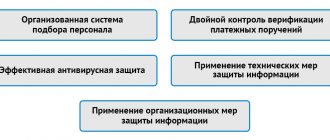1. A transaction made under the influence of violence or threat may be declared invalid by the court at the request of the victim.
2. A transaction made under the influence of deception may be declared invalid by the court at the request of the victim.
Deliberate silence about circumstances that a person should have reported with the conscientiousness required of him under the terms of the transaction is also considered deception.
A transaction made under the influence of deception of the victim by a third party may be declared invalid at the request of the victim, provided that the other party or the person to whom the unilateral transaction was addressed knew or should have known about the deception. It is considered, in particular, that a party knew about the deception if the third party guilty of deception was its representative or employee or assisted it in completing the transaction.
3. A transaction on extremely unfavorable terms, which a person was forced to make as a result of a confluence of difficult circumstances, which the other party took advantage of (a enslaving transaction), may be declared invalid by the court at the request of the victim.
4. If a transaction is declared invalid on one of the grounds specified in paragraphs 1-3 of this article, the consequences of invalidity of the transaction established by Article 167 of this Code shall apply. In addition, losses caused to the victim are compensated by the other party. The risk of accidental destruction of the subject of the transaction is borne by the other party to the transaction.
When coercion to complete a transaction is a criminal offense
Lawyer Antonov A.P.
Article 179 of the Criminal Code of the Russian Federation “Forcing to complete a transaction or refusal to complete it” is rarely used in practice. In 2022, only 8 people were convicted under it, and in the first half of 2022 - 5 people. First of all, this is due to the difficulties of proving this crime - it is necessary to clearly establish that these actions were not simply threats to kill, cause harm to health, extortion, etc. However, one of the cases considered in the Sverdlovsk region in 2022 is of interest.
One of the apartments in Yekaterinburg had 2 owners, one of whom died, and his share passed to another person (later to the victim). She moved into this apartment, began living in it and creating obstacles for the second owner to use the apartment. To protect her property from possible penalties, she transferred her share to her daughter. The second owner, unable to withstand the illegal actions on the part of the victim, sold his share to another person. After the purchase, he also tried to move in, but the victim systematically interfered with him, did not let him into the apartment, threatened to report the theft of her things if he came in, etc.
Realizing that the purchase of this share was unsuccessful and he would not be able to live in the apartment, the owner decided to sell it and entered into an agreement with a realtor (later the defendant). Having brought two potential buyers to inspect the apartment, he found the victim who, in an obscene form, demanded that the buyers leave, since the apartment was not for sale. The defendant expressed his complaints to the victim, after which he struck her several blows that did not cause harm to her health and pushed her out the door. The victim contacted the police with a statement.
According to investigators, the crime was committed for selfish reasons, with the goal of forcing the victim to sell the apartment. As evidence, a forensic medical examination report on the presence of bodily injuries, an audio recording of the conflict, as well as testimony of witnesses, many of whom were relatives of the victim, were presented. The court was convinced by this evidence, and a guilty verdict was returned.
However, the investigation's version was incorrect. The court did not examine a number of evidence presented by the defense, namely screenshots of correspondence in the WhatsApp messenger, from which it follows that the defendant agreed with the daughter of the victim (the owner of the apartment) to sell her share at a clearly inflated price. Moreover, the audio recording available in the case materials was also not properly examined by the court. Of course, it contains shouting and obscene language between the defendant and the victim, but the threats he expressed were not specific, they did not mention the deal. This conversation only testifies to the personal hostility of the parties to the conflict.
Further, the defense presented extracts from the Unified State Register of Real Estate, from which it follows that the victim herself repeatedly acquired shares in the apartments, after which she acquired adjacent shares and sold the entire apartment. That is, she deliberately prevented the co-owners of the apartments from using their share, forcing them to buy her share at a clearly inflated price and thus making a profit.
Thus, the convict did not force the victim or her daughter to complete the transaction. He inflicted beatings, but they are not criminally punishable in this situation and are qualified under Article 6.1.1 of the Code of Administrative Offenses of the Russian Federation. In the appellate instance, the criminal case was dismissed; the cassation instance agreed with these arguments.
Sincerely, lawyer Anatoly Antonov, managing partner of the law firm Antonov and Partners.
Still have questions for your lawyer? Ask them right now here, or call us by phone in Moscow +7 (499) 288-34-32 or in Samara +7 (846) 212-99-71 (24 hours a day), or come to our office for a consultation (by pre-registration)!
Difference from extortion
The main feature of extortion, separating it from coercion, is the presence of a property interest. The subject of Article 163 of the Criminal Code of the Russian Federation “Extortion” is exclusively such objects of civil legal relations as:
- money and securities;
- property rights;
- things, jewelry, etc.
Article 179 of the Criminal Code of the Russian Federation provides for the actual occurrence of consequences of a transaction. The victim in this case can still receive some profit. If a criminal receives a service, work or property free of charge, such an act should be classified as extortion.
Download for viewing and printing:
Article 163 of the Criminal Code of the Russian Federation “Extortion”
Legal coercion
There are a number of situations in which the parties are required to enter into agreements. Such a duty is usually driven by the need to protect public interests and ensure public safety. In this case, if one of the parties to the contract does not want to conclude it, they will be forced to do so in court.
It is necessary to conclude an agreement:
- If a preliminary agreement has been concluded.
- When concluding a public contract.
- For monopolists producing certain types of products.
- When concluding a deal with the winning bidder.
If there are no such conditions, then the right to enter into an agreement remains with the parties to the transaction.
Qualification
When qualifying this crime, it is often confused with extortion, since their characteristics are quite similar. However, there is an important distinguishing feature between them, which is the difference in the subjects of the offense.
In the case of Art. 163 of the Criminal Code of the Russian Federation it is the object of civil rights . This could be property, money, rights, etc. According to Art. 179 of the Criminal Code of the Russian Federation, the subject is relations in the economic sphere.
The difference between extortion and coercion of a transaction lies in the subject of the offense.
Other signs by which these two offenses can be distinguished include the following:
- coercion presupposes that the culprit has his own specific interest in the legal consequences of the incident;
- any transaction concluded under pressure from other persons will be considered invalid, but not imaginary, since the offender wants it to have full legal force. If a citizen wants to hide extortion with actual legal relations, then this agreement will already be interpreted as imaginary, since its purpose is to cover up the fact of extortion;
- when concluding a deal under duress, the participants find themselves in unequal positions, and the very fact of its execution results from despair;
- Extortion directly affects property relations: the extortionist demands the execution of his actions in pursuit of his own selfish goal.
From a legal point of view, coercion to complete a transaction is considered less dangerous to society. However, both of them are extremely negative for property relations, as they force the victim to perform actions that she does not want to do.
Let’s say that during the process of coercion, the culprit also disseminated some incorrect information that harms the honor and dignity of the victim. In this case, we are already talking about imposing punishment for the totality of atrocities: under Art. 179 and 129 of the Criminal Code of the Russian Federation.
The disclosed information about the victim can be either fictitious or quite real. However, if they contain information about an offense that occurred on the part of the victim of a crime, then they cannot be classified as signs of an objective party, since they cannot cause real harm to a citizen.
Principles of freedom of agreements under the Civil Code of the Russian Federation
This principle is defined by Article 1 of the Civil Code of the Russian Federation and appears throughout the entire code. It is on this that the procedure for concluding transactions and invalidating those that violate the principle of freedom of contract is based.
The Civil Code states:
- The unconditional right to conclude a contract or to refuse to conclude it.
- Making changes to the contract within the framework of the law.
- Free choice of counterparties.
- Equality of the parties at all stages of cooperation.
These principles must be taken into account in all transactions without exception.
Arbitrage practice
There are very few cases where coercion into a transaction is qualified without aggravating circumstances. Typically, such crimes are committed either by violence or by a criminal group.
The most important task of the court is to distinguish between extortion and coercion into a transaction. Sentences under two articles at once are recognized by higher courts as invalid, since these crimes are mutually exclusive.
For example, when a victim was forced to exchange an apartment for a cheaper one, beating and torturing his son would be classified as extortion, not coercion to make a deal.
Laws on forced transactions and which ones were abolished (repealed)
In the Criminal Code of the Russian Federation, article 179 on coercion to enter into a transaction is in force. It is the one that is in force now and under which preventive measures are prescribed for this offense. Article 179 consists of two parts. In the second part, one of its components has already lost its legal force.
In addition, there is Art. 421 of the Civil Code of the Russian Federation, which states that individuals and legal entities can, at their own request, enter into any agreements. In this case, coercion is not allowed, except in cases stipulated by regulatory legal acts or obligations assumed on one’s own initiative.
A transaction concluded under duress is automatically considered invalid.
In Art. 153 of the Civil Code of the Russian Federation defines the term “transaction” - these are actions of individuals and legal entities aimed at achieving agreements in the field of civil rights and freedoms.
According to Art. 168 of the Civil Code of the Russian Federation, any transaction that was executed in violation of legislative norms is automatically declared invalid and has no weight.
Brief content of the provisions of Article 179 of the Criminal Code of the Russian Federation
The article on coercion into a transaction consists of two parts.
The first of them talks about this offense as such, as well as something slightly different: the dissemination of information that can cause significant harm to the rights and legitimate interests of the victim or his loved ones , provided, of course, that this crime does not have signs of extortion.
The second part indicates a preventive measure for the same crime, but taking into account two aggravating circumstances:
- using violence;
- when it is committed by a whole group of citizens.
What is the responsibility for forcing a transaction?
The citizen will bear criminal liability, but the punishment will be chosen by the court, based on the circumstances of the incident, as well as other important factors (the identity of the culprit, etc.).
If the crime is classified under Part 1 of Art. 179, then the following preventive measures can be chosen:
- a fine of up to 300,000 rubles or wages for 2 years;
- restriction of movement for 2 years;
- forced labor for the same period of time;
- arrest for six months;
- imprisonment for 2 years with payment of a fine of up to 80,000 rubles or 6 months’ salary or without applying the latter sanction.
Let's say an offense took place under Part 2 of this article. Then the perpetrator of the act will face imprisonment for up to 10 years.







